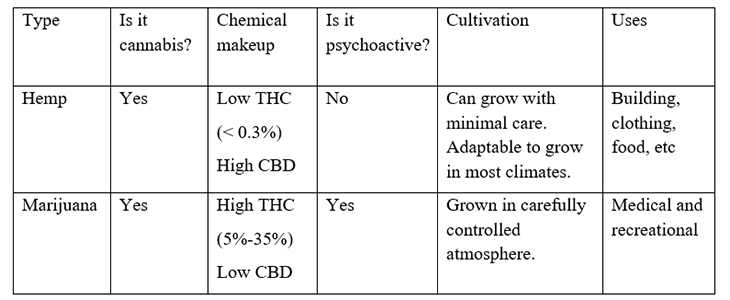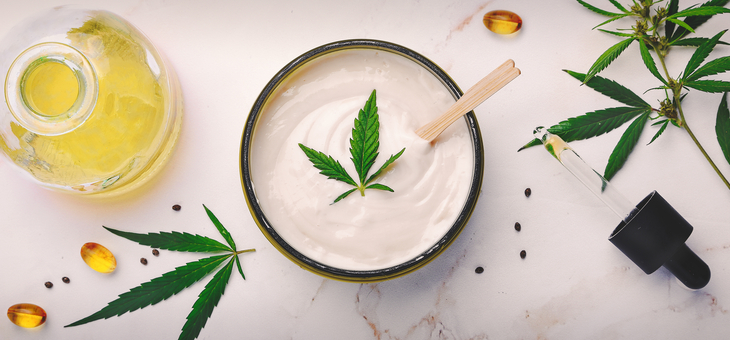The Australian Hemp Industry lobbied for 15 years to persuade the government to follow countries such as the UK, US and Canada and pass the legislation that legalises the use of hemp in food products.
It finally became legal in 2017, and the hemp industry exploded; we saw everything from hemp muesli to hemp flour appear on the supermarket shelves. And it seems hemp is a true superfood.
Hemp as a superfood
The plant is a good source of protein and exceptionally rich in two essential fatty acids, omega-3 and omega-6. This makes it a great source of healthy fat for people who don’t eat fish or eggs. Some evidence suggests omega-3 promotes brain health.
Hemp seeds are also a great source of vitamin E and minerals, such as phosphorus, potassium, sodium, magnesium, sulphur, calcium, iron and zinc. The high magnesium content may help to calm anxiety.
Read more: How to use these eight superfoods
Additionally, animal studies have shown that hemp seeds or hemp seed oil may reduce blood pressure, decrease the risk of blood clot formation and help the heart recover after a heart attack
We are seeing more and more nootropic-style products promoting brain health, energy and mental clarity pop up, so it can be hard to know which ones to try. Here’s a little background on hemp.
Hemp vs marijuana
Hemp and marijuana are two forms of the cannabis plant, which are actually quite distinct. They can be differentiated by looking at their chemical makeup, method of growing, natural adaptability and appearance.

The main thing people want to know is that they won’t get high after ingesting hemp. And, although it is a species of cannabis, unlike marijuana it contains negligible levels of the psychoactive compound tetrahydrocannabinol (THC).
Read more: Will edible hemp get me high?
The stigma and confusion around hemp vs marijuana has meant that we’re far behind on benefitting from this versatile plant.
What can hemp be used for?
Hemp can be used to make a wide range of products including healthy dietary supplements, skin products, clothing, and accessories. Along with bamboo, hemp is one of the most sustainable and fast-growing crops in Australia.
Building with hemp
Hempcrete is rapidly becoming a popular resource. It’s made from woody hemp fibre, limestone, and water, and used to construct a solid wall around a timber base frame.
In the past three years more than 100 eco-friendly homes in Australia have been built using hempcrete, with the use of the material particularly prevalent in Western Australia, New South Wales, and Victoria.
Hemp grows stronger with time, is mould proof and breathable, fire and pest-resistant, lasts up to six times longer than a standard home and can be built in any type of climate.
Hemp clothing
Hemp is arguably the most sustainable fabric out there. It consumes less water than other crops (such as cotton) and is extremely hardy as it will grow in most soil types.
Hemp is also naturally resistant to pests, meaning that pesticide, herbicide and fungicide use is minimal when growing it.
Just like hempcrete, hemp fabric is antibacterial and mould resistant, making it excellent for outdoor wear, and garments that hug the body. It’s stronger than cotton and can be composted at the end of its lifespan.
Hemp as a health drink
A year of stress and anxiety resulting from the pandemic has spurred the health food industry to create products that help consumers take better care of their mental and physical health.
Customers want effective ways to treat trauma, anxiety and depression. Hemp is high in cannabidiol (CBD), which is known to effectively treat anxiety, depression, epilepsy, inflammation, and chronic pain. It has even been used to stop seizures.
Health food stores and many supermarkets are now stocking beverages such as hemp kombucha, hemp milk, hemp juice and hemp coffee. Meanwhile, distillers are creating hemp-enhanced gin, vodka, rum and beer.
“Hemp is basically everywhere at the moment,” says Russell Lipton, who launched the Beyond Coconut Water brand in 2010. Last week, independent retailers began stocking Mr Lipton’s latest product line, Beyond Hemp – citrus and berry flavoured cans of hemp-infused sparkling water.
“It’s a functional beverage, created to promote calmness, reduce health risks and boost brain function,” says Mr Lipton. “I’m always looking to see what’s trending and what’s the next big thing. This is it.”
How hemp can be used in cooking
All of the food products made from hemp are produced by the seeds, which have a delicious nutty flavour.
The seeds are first pressed to remove a rich oil, and you are left with a fibrous mass known as a ‘hemp cake’.
The hemp cake is milled into flour, which can be used in place of regular flour but is gluten-free and high in protein.
Read more: Is the gluten-free fad masking a bigger issue?
Hemp protein powders are now among the most popular types of vegetarian/vegan, gluten-free and dairy-free protein powders on the market.
Hemp seeds themselves can also be freshly ground and used as a sprinkle to give your salads, muesli, yoghurt or fruit a nutritious boost.
Do you have any hemp products in your home? Will you be on the lookout for it now?
If you enjoy our content, don’t keep it to yourself. Share our free eNews with your friends and encourage them to sign up.
Disclaimer: This article contains general information about health issues and is not advice. For health advice, consult your medical practitioner.

